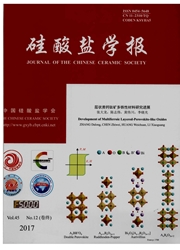

 中文摘要:
中文摘要:
实验室常用外加电压来加速氯离子在水泥基材料中的迁移,缩短试验时间。本文对外加电压下不同因素对氯离子迁移特性的影响、外加电压对氯离子结合和解吸附、水泥基材料孔结构及水化产物的影响进行了综述。外加电压的变化对非稳态电迁移系数影响不明显,氯离子浓度对稳态迁移系数有影响,使用矿物掺合料时不同试验得到的迁移系数间的差异变小,硅灰作用最明显,其次是粉煤灰。不同试验条件时电压对氯离子的结合的影响也不同。反加电压会促使结合氯离子的解吸附及200 nm以下孔结构的细化,同时对水化硅酸钙(C–S–H)的分解及Friedel’s盐形成也有一定的影响。
 英文摘要:
英文摘要:
Applied voltage methods are used to accelerate the migration of chloride ions and to shorten the testing time. This paper reviewed the influence of factors on the chloride ion migration characteristics in an electrical field, and the effect of applied voltage on the chloride binding-desorption, pore structure and hydration products. The applied voltage has a slight effect on the unsteady electro-migration coefficient. Chloride ion concentration mainly affects the steady state migration coefficient. The use of mineral admixture can reduce the difference between chloride diffusion coefficients obtained by different test methods under applied voltage, especially the use of silica fume. The effect of applied voltage on the chloride ion binding is varying under different test conditions. The reverse voltage can prompt the desorption of combined chloride ions, which has an effect on the refinement of pore structure of below 200 nm, decomposition of hydrated calcium silicate (C-S-H) and formation of Friedel's salt.
 同期刊论文项目
同期刊论文项目
 同项目期刊论文
同项目期刊论文
 期刊信息
期刊信息
